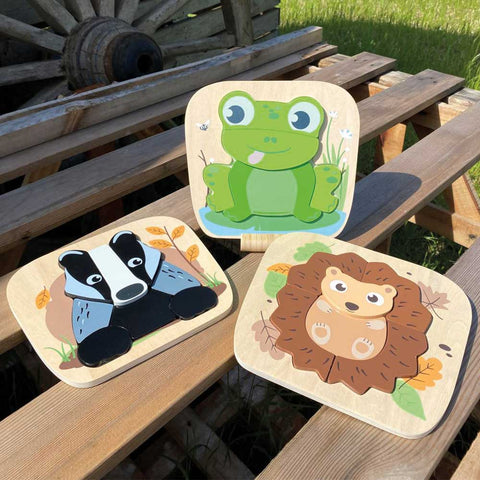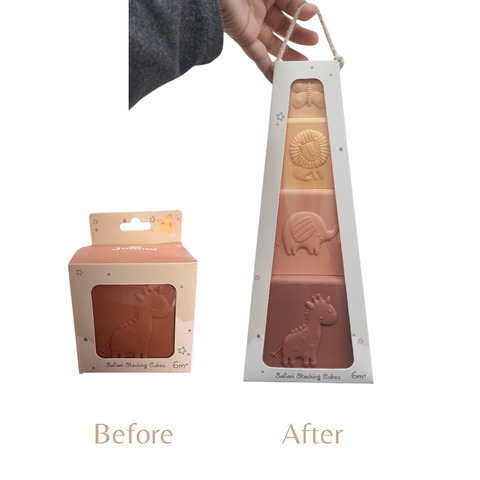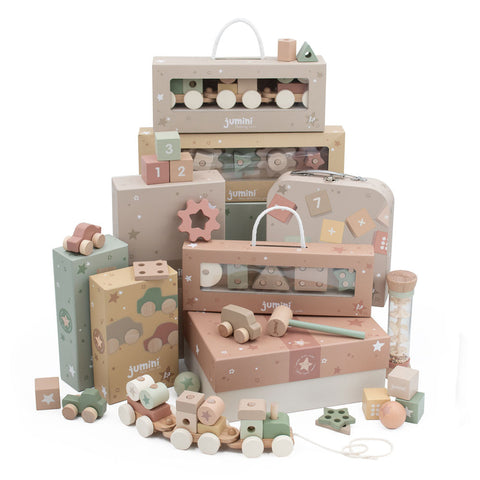As consumers become increasingly eco-conscious, retailers are under growing pressure to stock products that align with shifting values. From reusable packaging to ethical sourcing, sustainability is no longer a trend—it’s an expectation. And in the world of children's retail, that expectation is shaping the toy shelves of gift shops, visitor centres, and farm shops alike.
1. Sustainability Appeals to Millennial and Gen Z Parents
The majority of today’s new parents are Millennials and Gen Z—demographics who actively seek out products that reflect their values. Sustainability, safety, and ethics are high on their list when shopping for their children. Wooden toys made from FSC-certified timber, plastic-free packaging, and long-lasting design are all huge selling points.
By stocking sustainable toys, gift shops aren't just offering playthings—they’re offering peace of mind. And that translates to higher perceived value and stronger customer loyalty.
2. Educational and Aesthetic Value in One Package
Eco-friendly toys often come with clean, classic designs that are as appealing to parents as they are to children. Think timeless wooden stacking toys, plush animals made from recycled materials, or silicone teething rings that are both functional and stylish. These toys feel “gift-worthy” and look right at home in curated retail spaces.
Plus, many sustainable toys also tick the “educational” box. Whether it’s role play sets that promote imagination or sensory toys that support baby development, sustainable toys often combine learning and fun—a winning combo for today’s shopper.
3. The Rise of Conscious Gifting
Impulse buyers are becoming thoughtful gifters. Shoppers browsing local garden centres, farm shops, or museums are often looking for something meaningful—especially when buying for children. A toy that’s beautifully made, safe, and gentle on the planet carries a story—and that story helps sell the product.
Retailers can maximise this by training staff on product origins and using POS signage to highlight sustainability credentials. “Made from recycled materials” or “Plastic-free and planet-friendly” are more than just buzzwords—they’re buying triggers.
4. Premium Products with Feel-Good Margins
Sustainable toys tend to sit in a higher price bracket—but that doesn’t put customers off. In fact, when a product is well-made, ethically produced, and packaged to tell a story, customers are more than happy to pay a little extra.
For gift shops, that means premium margins on products that turn heads and win hearts. And with strong wholesale support from suppliers, sustainable ranges often come with attractive minimum orders, eye-catching displays, and marketing assets to make in-store selling easier.
5. Aligning Retail with Responsibility
More retailers are aligning their buying decisions with their own sustainability goals. Whether it’s reducing plastic on shelves or supporting small, ethical brands, choosing sustainable toys is a natural extension of this shift.
At Inside Out Toys, we’ve seen this first-hand. Our Jumini wooden toys, made with FSC-certified wood and recyclable packaging, continue to be bestsellers across independent retail. Our newer ranges, like Jumini Baby (wood and silicone teething toys) and Jumini Friends (plush toys made with recycled fabrics), were developed in direct response to this demand.
Conclusion
Sustainable toys don’t just sit on the shelf—they spark conversations, build trust, and align perfectly with the evolving values of modern shoppers. For gift shops looking to stand out and sell smarter, stocking sustainable is more than just good ethics—it’s good business.




